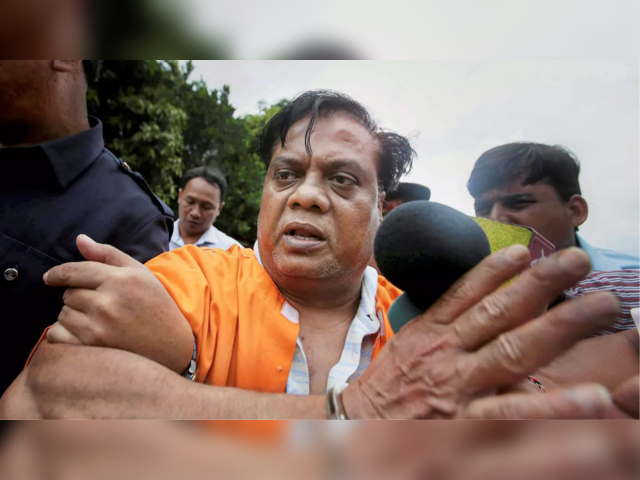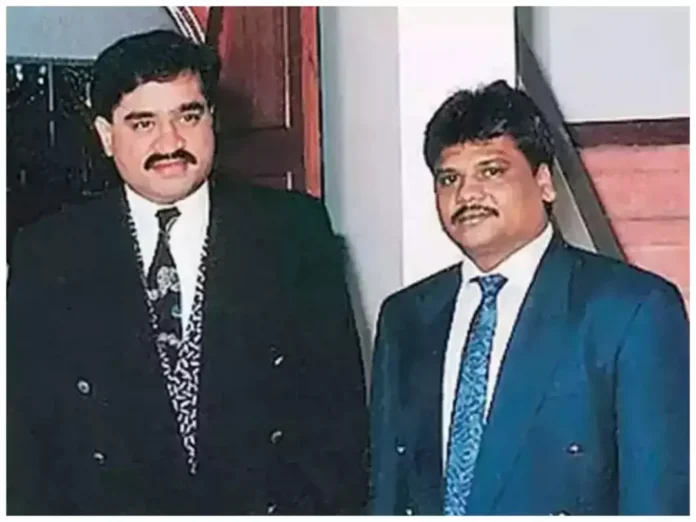In a controversial decision, the Bombay High Court has granted bail to underworld gangster Rajendra Sadashiv Nikalje, better known as Chhota Rajan, in the 2001 murder case of hotelier Jaya Shetty. The court suspended Rajan’s life sentence, which was handed down by a special MCOCA court in May 2023. Shetty, the owner of the Golden Crown Hotel in central Mumbai, was shot dead by members of Rajan’s gang after he faced threats of extortion. The decision to grant bail has reignited debates about the efficiency and integrity of the judicial process in cases involving organized crime, leaving the public divided on whether justice is truly being served.
The Murder of Jaya Shetty: A Chilling Crime
The brutal murder of Jaya Shetty took place on May 4, 2001, on the first floor of his own hotel, Golden Crown, located in the Gamdevi area of central Mumbai. Shetty had been receiving extortion threats from the Chhota Rajan gang, a notorious criminal syndicate that ruled Mumbai’s underworld for years. Despite these threats, Shetty’s police protection was withdrawn at his own request just two months before the attack.
On that fateful day, two alleged members of the gang stormed into the hotel and fatally shot Shetty, leaving the city in shock. The murder was seen as a brazen act of violence, not only because it occurred in a public place but also due to its clear links to organized crime. The case became one of the many crimes tied to Chhota Rajan, who has long been considered one of India’s most dangerous criminals with international ties.

Following years of investigation, a special Maharashtra Control of Organised Crime Act (MCOCA) court found Chhota Rajan guilty of orchestrating the murder. On May 30, 2023, Rajan was sentenced to life imprisonment. The court’s decision was lauded as a victory in the fight against organized crime, especially given Rajan’s reputation for evading justice for years.
A Questionable Bail: Should Rajan Have Walked Free?
The granting of bail to Chhota Rajan in this high-profile case has raised serious concerns about the judicial system’s ability to handle cases involving powerful criminals. Many are questioning whether such a notorious figure, convicted for murder, should have been allowed temporary freedom.
The court’s decision to suspend Rajan’s sentence, pending an appeal, has brought mixed reactions. Critics argue that allowing bail for a gangster like Rajan sets a dangerous precedent. It could signal that even convicted criminals with ties to organized crime can find ways to manipulate the legal system. Some legal experts have suggested that Rajan’s vast influence and resources may have played a role in his successful bid for bail, despite the severity of his crimes.
This has sparked a larger debate about the fairness and effectiveness of India’s judicial system. Can a justice system truly serve its people when influential criminals are granted leniency? Many members of the public believe that Rajan’s bail is a clear failure of the system, one that undermines the hard work put into bringing dangerous criminals to justice. On the other hand, some legal minds argue that even the most notorious criminals deserve their legal rights, including the right to appeal and the possibility of bail.

Public Outcry and the Larger Impact on India’s Justice System
The decision to grant bail to Chhota Rajan has not been without its share of public outrage. Many see it as a betrayal of justice, especially for the family of Jaya Shetty, who had already endured over two decades of waiting for a conviction. The fact that Shetty’s murderers walked free for so long has caused widespread frustration, and now Rajan’s bail has only deepened the sense of injustice.
Citizens and legal commentators alike are calling for greater scrutiny into how bail decisions are made, especially in cases involving organized crime. The worry is that high-profile criminals with vast networks of influence might be able to manipulate the legal process to their advantage, reducing the deterrent effect of strict sentences.
The broader implications for the Indian judicial system are undeniable. Public trust in the system is wavering as cases like Rajan’s suggest that powerful individuals can escape the full consequences of their actions. With Rajan’s appeal pending, the outcome of this case will be closely watched, not just by those affected by the murder of Jaya Shetty, but by an entire nation that is questioning whether its justice system is truly delivering on its promise of fairness and accountability.
In the eyes of many, Chhota Rajan’s bail feels like a slap in the face of those who have fought for justice in cases involving organized crime. As this case continues to unfold, it serves as a stark reminder of the challenges facing India’s legal system, where the balance between protecting legal rights and ensuring public safety remains delicate. Whether Rajan’s release on bail was the right decision or not, one thing is clear: the fight for justice in India is far from over.

